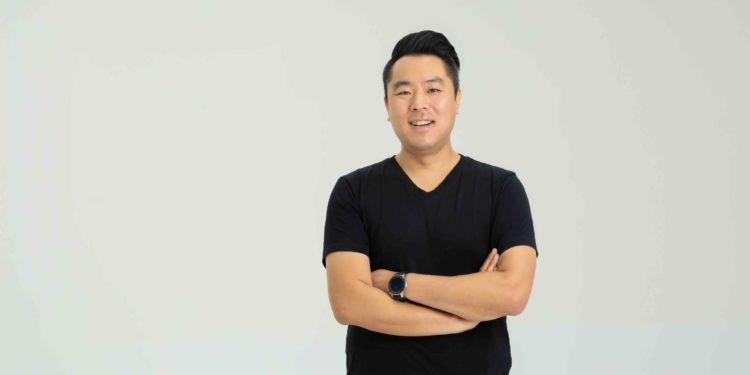Korean startup DamoGO CEO Lin Hwang is helping the planet with his startup’s aim to solve the problem of food wastage across sectors. Hwang was a food industry entrepreneur for a long time and had seen the massive amount of food wastage that happened. He wanted to change it but had no idea how to till he met his business partner Farras. They established this unique app DamoGO, the first of its kind mobile app where any business (B2B and B2C) that sells food can gain extra revenue by giving their unsold food a second life. DamoGO is a social impact food startup that connects consumers directly with perfectly good, unsold food from restaurants, bakeries, grocery stores, and farms’ pick-up points at half price.
Lin Hwang talks to koreatechdesk.com about how he wants to create a positive impact with DamoGO, his story of establishing the brand, and plans for future expansions.
1. Please tell me about your background and what motivated you to get started with your company?
I’ve been an entrepreneur at all levels of the food industry for 14 years and have seen and been a culprit of wasting perfectly good, unsold food into the garbage bin. As a seafood processor, there was a waste of “bycatch” – fish that was not the target catch but caught. This would go to waste as trash back into the sea. During the processing of seafood at the plant, there was so much excess and parts of processed seafood that still had value but went to waste. As a restaurant franchise owner, we had so much untouched food being thrown away at the end of the day.
I hated doing all this, but there was absolutely no choice. I always wanted to reduce waste but wasn’t able to on a large scale until I co-founded my DamoGO. My co-founder Farras hated wasting perfectly good food during his time at Korea University and decided to look up statistics on food waste. To his shock, his home country of Indonesia was no. 2 in the world in terms of food waste. He was embarrassed and wanted to do something about it, so he co-founded DamoGO with me.
2. What is your current main product and can you share any previous product pivot story to the current product?
We created an all-in-one mobile app to solve the problem of unsold food for any food business. We help farms sell their weird/ugly harvest directly to our restaurant partners. We help our restaurant partners sell the day’s surplus food to our app users. Our app users can also purchase the ‘ugly’ produce directly from our farm partners. Everything in this chain is heavily discounted, and it’s a HUGE win-win for everyone. Farms and restaurants get more revenue, get more clients/customers, get more exposure, save money and time, and strengthen their brand image by actively reducing waste. For our app users, they get a large discount on delicious food, discover more restaurants, and feel good about doing their part to reduce waste.
We launched in Korea in 2019 and, after 6 months, decided to completely to pivot to Indonesia. Indonesia was in our future plans after scaling Korea; however, we decided it was better to pivot to Indonesia immediately, and it was the right decision.
3. What is the market opportunity for your product?
In Indonesia, $10 billion of perfectly good, untouched food gets thrown away every single year. At farms, 30-40% of every harvest gets thrown away or unharvested. This is all lost revenue, and it has a negative impact on the environment. Even if we can get 1% of this market, it is a huge opportunity financially, and we would also be helping the environment and helping stakeholders save money.
4. What’s your business model, and how have you grown your revenue? What strategy worked best?
We currently have 3 interconnected business models:
1) Restaurants and other food retailers upload the day’s perfectly good, unsold food for any customer to purchase instead of letting it go to waste
2) We work with farms to sell their “ugly” fruits and vegetables to households
3) We distribute “ugly” fruits and vegetables to other food businesses. On average, users save 50% off the regular price and our B2B partners save 20-40%.
We launched in August 2020 in Indonesia. Our monthly revenue was $5,000 for the 1st month, $10,000 for the 2nd month, and over $30,000 in October. Our growing B2B is leading our revenue growth.
5. Please tell me more about your founding team.
We met when Farras got involved with one of his university friends to enter a social impact startup competition, and they wanted to focus on food waste. His university friend was an intern for my company in Seoul when I was working to bring in more restaurants franchises from the States. They asked me to advise them on this startup competition since they had no food industry experience. I saw the potential of the project and asked Farras to do this full-time together.
6. How much money have you raised in total so far? When was the recent funding round?
We raised $130,000 from family and friends in October 2018, raised $180,000 as a low-interest startup loan in October 2019, and we are currently raising our seed round of $850,000.
7. What are the biggest challenges and obstacles that you have faced in the process of fund-raising? If you had to start over, what would you do differently?
I was new to the startup world in the early stages and didn’t know what kind of structure to do for our family and friends. I put a small valuation on it, and in hindsight, I should’ve gone with a SAFE agreement.
8. What are your milestones for the next round? And what are your goals for the future?
a. $1.5 million in revenue for year 1
b. 75k – 100k DAU
c. Activating all 8,000 partner stores
d. Total 12,000 partner stores
e. B2B partners from 20 to 100
Goals for the future are to get to $25 million in revenue by year 5, with an additional B2B and 3 more B2C within our all-in-one app. We also expect to be in 2 or 3 other countries with a few years.
9. How have you attracted users and with what strategy have you grown your company from the start to now?
We’ve had about 3,000 users from our initial launch in Korea and since July 1st of 2020, we’ve obtained 5,400 new users, mostly in Indonesia. We’ve mostly done social media marketing and now we are doing large Kpop related giveaways, and thru influencers as well. We’ve spent $800 since July 1st in marketing for a user acquisition cost of $0.13/user. We will spend more money on marketing after our seed raise and we expect our user numbers to really jump up.
10. What do most startups get wrong about marketing in general?
I think most startups in the beginning focus on just acquiring new users, but don’t put enough effort into retaining them.
11. How do you plan to expand globally?
We are part of a really good impact accelerator called the Impact Collective, and they have a very strong network across ASEAN in private and public sectors that can really help us. In addition, my co-founder and I have a pretty good network in other parts of Southeast Asia, and we will definitely be leveraging them.
12. How do you handle this COVID-19 outbreak situation for your company’s survival in the future?
We had an entire plan developed, and we’ve issued a response to the COVID situation on what we do and how everyone should be handling the situation to make everyone feel safe. We also used our platform to help during COVID and set up a way for our users to donate food to healthcare workers on the frontline. This was featured in a media video from the United Nations Development Programme.
13. What’s the best advice you’ve ever received? and What advice do you have for someone who is interested in doing similar things like yours or in a similar direction?
One of the best pieces of advice I received is “Don’t be afraid to look where noone’s looking”. Advice I would give is – Don’t be afraid to immediately pivot if something isn’t working and also network as much as you can.
14. What are the top-three books or movies (TV series) that changed your life and why?
There’s only one for me at the moment – Moneyball by Michael Lewis. I love baseball, but I also love how something that was very antiquidated and traditionalized was modernized and completely changed with data and statistical analysis. There are so many industries that can be disrupted because they are so antiquated and overlooked.
15. How do you keep yourself motivated every day?
You definitely have a lot of up and downs, and it takes a toll on any founder. I’m usually pretty motivated because of everything that is going on with our startup, so naturally, it’s exciting. But the times when I lack motivation, I’ll talk to close friends, and that really helps me get back to the right frame of mind.
Follow updates about DamoGO here,
Apa sih DamoGO itu? ? pic.twitter.com/Z2r0RzRdso
— DamoGO (@damogo_id) April 2, 2020
Read more on koreatechdesk.com,





